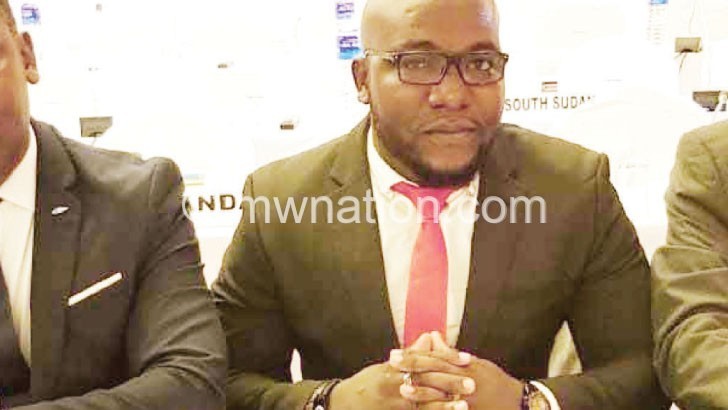‘We want to fight corruption’
Four civil society organisations (CSOs) have established an alliance to contribute towards the clampdown of serious and organised corruption in Malawi. They include Centre for Human Rights and Rehabilitation (CHRR), Church and Society Programme (CSP) of the CCAP Synod of Livingstonia, Malawi Law Society (MLS) and Youth and Society (YAS). These CSOs want to work hand-in-hand with the media to tackle the vice under the banner of United Against Serious and Organised Corruption (USOCOM) and it is being hosted by CHRR. Our News Analyst LUCKY MKANDAWIRE engages Timothy Mtambo, a member of the alliance’s steering committee, on the network and other issues.

Q1
What has prompted your organizations to establish the network?
A1
The rising cases of corruption have prompted us to establish this alliance. Recent audits in Malawi have revealed an unacceptable state of affairs where public finances have been grossly mismanaged by people entrusted with the responsibility to safeguard them. Malawi is still reeling from the 2013 corruption scandal dubbed ‘Cashgate’ in which billions of taxpayers’ money was lost through fraudulent payments to private contractors for services that were not rendered. These are resources that would have otherwise been utilised to develop the nation in, for example, building more schools, improving food security and salvaging our health system.
Currently, there are numerous alleged cases of corruption in Malawi, including the police food ration scandal, tractor-gate, Escom-gate, immigration’s uniform-gate and many others. Such high levels of corruption are indicative of serious lack of transparency and accountability in the public sector. The failure by oversight and anti-corruption bodies to promptly investigate these cases and bring all those responsible to book is a cause for further concern. The alliance recognises that addressing serious and organised corruption is not just a matter for the police or the Anti-Corruption Bureau [ACB]. Many other players need to be involved, including local civil society organisations; hence, this alliance.
Q2
What are the movement’s objectives and what does it want to achieve?
A2
To give birth to a new Malawi free from the massive looting of public resources and promote zero tolerance to corruption. We want to contribute towards the eradication of serious and organised corruption through improved governance and accountability mechanisms for the benefit of the poor people in Malawi. In this respect, our aim is to ensure that we have strong and robust accountability mechanisms in the public sector, particularly in public institutions that are highly susceptible to corruption. We also aim to collaborate with—and wherever possible enhance the capacity of–other organisations, both public and private, including the media, that are working tirelessly day in day out to investigate, expose and stamp out corruption. We are particularly cognisant of the commendable work the media are doing in investigating and exposing corruption in this country.
Q3
What are the key strategies you intend to put in place to achieve deliverable results?
A3
The alliance will be pursuing various strategies, including awareness-raising, capacity building, public expenditure tracking, advocacy and Public Interest Litigation. In relation to the latter strategy, we have set up a legal structure, consisting of highly trained lawyers that will be responsible for all litigation.
The consortium will also lobby anti-corruption agencies, such as the ACB, to expedite cases and avoid unnecessary delays, ensure assets of offenders are frozen more quickly and earlier in investigations. We will also lobby the courts for stiffer penalties for those convicted of serious and organised corruption to deter others. We also intend to collaborate with international institutions, such as the International Centre of Asset Recovery to ensure an end to safe havens for funds obtained through corruption and other illicit means from Malawi.
Q4
Malawi is said to be losing about 30 percent of its budget resources to corruption and financial experts have attributed this to weak legal and policy frameworks at all levels, anything the network wants to do on this?
A4
The country has fairly good laws and policies on corruption. However, there is a very big gap in public institutions between policy and practice. Public officials in Malawi are still entrenched in old, authoritarian ways, a situation that has sustained the culture of secrecy in public institutions, allowing corruption to flourish. As an alliance, we will be pushing for strict implementation of these laws and policies. The alliance will also be advocating for a review of our laws to ensure they are harmonised and are in sync with international best practice. One of the things we will be advocating for is the adoption of whistleblower protection. It is unfortunate that up to now, Malawi does not have a law protecting whistleblowers. The enactment of whistle blowers’ protection law is therefore, an essential element of the war against corruption.





